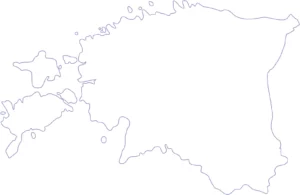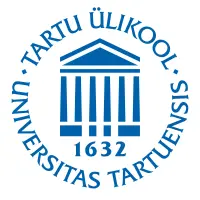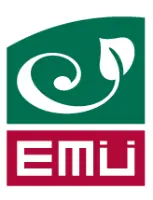Your quick guide on talent and labor compliance norms in Estonia
Capital
Tallinn
Currency
Euro
Languages
Estonian
Payroll Frequency
Monthly
GDP per Capita
$33,485.16
Employer Tax
33.8%
Talent Overview
Estonia has a market-based economy and is currently the 7th freest economy in the world (with a freedom score of 80.0). Being a part of the European Union has worked in their favor as their economy heavily relies on trade. This allowed them to maintain strong economic ties with Finland, Sweden, and Germany. Moreover, Estonia’s telecommunications and electronics sectors have also contributed to its continued growth and development.
Major economic hubs:
Tallinn, Tartu, Narva
Skills in demand:
ICT professionals, Healthcare professionals, Legal

Local Universities
The top local universities in Estonia are as follows:

Local: 1
World: 467

Local: 2
World: 1119

Local: 3
World: 1551

Local: 4
World: 3052

Local: 5
World: 3126
Salary Data
The average monthly salary in Estonia from some major job roles are:
| Job Title | Average Monthly Salary (EUR) | Average Monthly Salary (USD) |
| Financial Manager | 5,420 EUR | 6,085 USD |
| Chief Financial Officer | 5,290 EUR | 5,939 USD |
| Accounting Manager | 4,070 EUR | 4,570 USD |
| Business Development Manager | 4,120 EUR | 4,626 USD |
| Financial Analyst | 3,520 EUR | 3,952 USD |
| Customer Service Manager | 1,050 EUR | 1,179 USD |

Talent Sourcing Tips
328,600
Soshace, BrainAgency, Pconsult
Employees in Estonia are characterized as highly skilled, making the country’s labor market a promising opportunity for global businesses. Additionally, labor laws and rules are easy and straightforward. Here are some things that employers need to know about employing in Estonia.
The primary language used in employment contracts is the Estonian Language. However, the language of the contract can be in a foreign language if both parties agree to use such.
Employees in Estonia are given from 1 to 4 months of probation period.
| Date | Name | Type |
| 1 Jan | New Year’s Day | National Holiday |
| 24 Feb | Independence Day | Government Holiday |
| 29 Mar | Good Friday | National Holiday |
| 31 Mar | Easter Sunday | National Holiday |
| 1 May | Labor Day / May Day | National Holiday |
| 19 May | Pentecost | National Holiday |
| 23 June | Victory Day | National Holiday |
| 24 June | Midsummer Day | National Holiday |
| 20 Aug | Independence Day | National Holiday |
| 12 Oct | Our Lady of Aparecida / Children’s Day | National Holiday |
| 24 Dec | Christmas Eve (from 2pm) | Government Holiday |
| 25 Dec | Christmas Day | National Holiday |
| 31 Dec | New Year’s Eve (from 2pm) | Government Holiday |
| Type of Leave | Duration | Mandatory |
| Annual Leave | 28 days | Yes |
| Sick Leave | 30 days | Yes |
| Maternity Leave | 140 days | Yes |
Payroll
Payroll Cycle
Employees in Estonia are paid once a month.
Minimum Wage
The minimum hourly wage in 2023 is 4.30 EUR (gross) and the minimum monthly wage is 725 EUR.
Overtime Pay
The standard working hours in Estonia are 48 hours per week. Overtime work should not exceed over 8 hours within a 7 day period. The period of overtime may offset work days unless employers agree to compensate the employee’s extra work with money. If so, Overtime is compensated at a rate of 1.5 times the wages.
Bonus
A 13th-month pay is not mandatory in Estonia.
Estonia offers a lot of benefits for their employees. Below are some of them:
Taxes
| Category | Rate |
| Pension | 20.00% |
| Health Insurance | 13.00% |
| Unemployment Insurance | 0.8% |
| Category | Rate |
| Pension | 2% |
| Unemployment Insurance | 1.6% |
Estonia has a flat rate of 20% for all items acquired through income.
The country’s standard VAT is 20%. However, it can be reduced by 9% for certain commodities such as books and periodicals, medicines and medical equipment, accommodation, and sanitary and toiletry products.
Offboarding & Termination
Termination in Estonia can take place in three ways:
Probationary employees’ notice period depends on the contract between the employee and employer, while non-probationary employees have up to 15 – 90 days.
If the contract is terminated due to redundancy, the employer must pay compensation of one month’s average wage for the employee’s last six month’s salary. For employment terms between 5 and 10 years, an additional one month’s pay has to be given.
Visa and Immigration
Estonia belongs to a part of the European Union (EU), and foreign workers belonging to the EU need no visa to enter the country. If they are to work and stay in Estonia for more than three months, they only need to apply for a residence permit at the Population Register of Estonia and secure an Estonian ID card.

Non-EU citizens must apply for a Schengen D-visa and a residence permit to stay and work for more than three months in the country.
Additionally, Estonia launched a Digital Nomad visa last August 1, 2020, to encourage remote workers to travel to the country and work there. It allows foreigners to work in Estonia legally even when their employers or business is registered abroad.